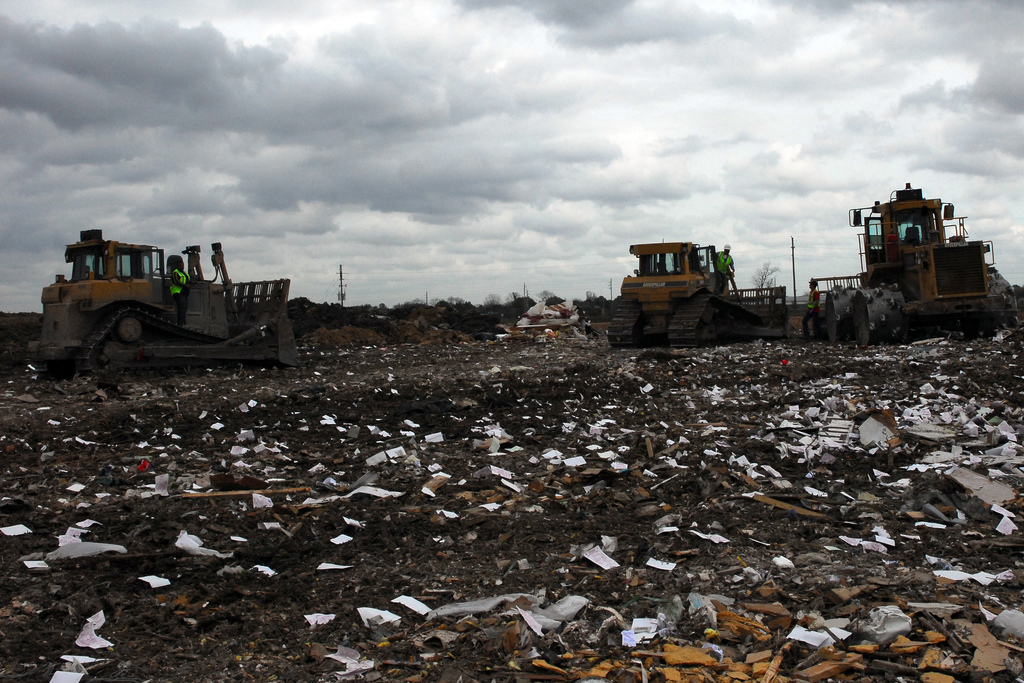From pv magazine USA.
Even under the worst of worst-case scenarios, throwing damaged, crushed or otherwise decommissioned photovoltaic (PV) solar panels into unsafe, unsanitary landfills will not result in runoff or emissions that could raise cancer or other health risks for nearby communities.
In fact, according to a new report from the International Energy Agency (IEA), health risks from lead in crystalline silicon PV panels are one order of magnitude — or about one-tenth — below the risk levels set by the U.S. Environmental Protection Agency (EPA). For cadmium in thin-film panels, the risk is even lower — “several orders of magnitude.” Both metals are classified as toxic and pose a range of threats to human health.
However, these findings are not intended as a carte blanche for the indiscriminate disposal of end-of-life solar panels, according to the report’s authors. “Recycling is expected to be a dominant strategy for sustainable end-of-life management and is both commercially underway and subject to further research and development activities,” they write in the second sentence of the report’s Executive Summary.
Rather, the report is targeted at answering public health concerns sometimes raised during permitting or regulatory proceedings, said co-author Garvin Heath, a senior scientist at the National Renewable Energy Laboratory.
In a separate research effort, Heath has called for an increased focus on developing high-value recycling methods aimed at recovering more silicon from end-of-life PV panels.
The value of worst-case scenarios
The use of worst-case scenarios in the IEA study is aimed at exploring maximum potential risks to human health. The scenarios used are, in reality, largely illegal or unlikely to occur in most countries; for example, landfills without linings to prevent toxic runoff or located within 100 meters of a river or stream that could be polluted by such runoff. According to the report, only 3.6% of U.S. landfills are located within 1.6 kilometers — just under a mile — of a river or stream.
Beyond quieting stakeholders’ safety concerns, the value of the study is in providing a model for future research to assess potential impacts to human health of other metals in solar panels — both today and as the technology continues to evolve. The current report is specifically limited to the key metals used in crystalline silicon and thin-film panels — including lead and cadmium.
The authors note that further research may be needed on other panel components such as copper, nickel and tellurium. The study is also limited to impacts on human health, not the environment in general.
The report is third in a series looking at other potential health risks — and worst-case scenarios — related to solar panels. Focusing on panel breakage and emissions caused by fires, the findings of these earlier reports are similar to the landfill report — that is, the risks to human health were all under EPA thresholds.
Author: K Kaufmann
This content is protected by copyright and may not be reused. If you want to cooperate with us and would like to reuse some of our content, please contact: editors@pv-magazine.com.








By submitting this form you agree to pv magazine using your data for the purposes of publishing your comment.
Your personal data will only be disclosed or otherwise transmitted to third parties for the purposes of spam filtering or if this is necessary for technical maintenance of the website. Any other transfer to third parties will not take place unless this is justified on the basis of applicable data protection regulations or if pv magazine is legally obliged to do so.
You may revoke this consent at any time with effect for the future, in which case your personal data will be deleted immediately. Otherwise, your data will be deleted if pv magazine has processed your request or the purpose of data storage is fulfilled.
Further information on data privacy can be found in our Data Protection Policy.